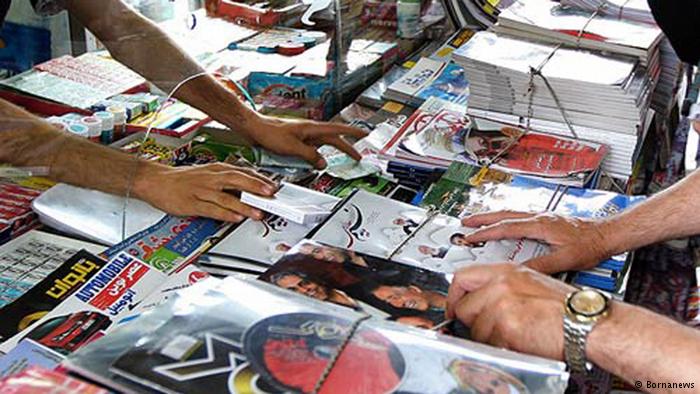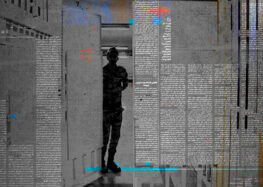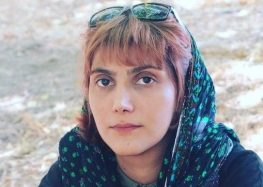Iranian Journalists Face Growing Threats and Intimidation by Authorities

Tactics Meant to Sow Fear among Independent Journalists in Wake of Reformists’ Parliamentary Election Gains
Iran’s Intelligence Ministry officials are increasingly harassing and threatening independent journalists in an apparent move to dissuade them from feeling emboldened by reformist and centrist candidates’ gains in the county’s recent Parliamentary elections.
“I received calls on my mobile phone two or three times a day from an unknown number. After three days I finally answered and a man who introduced himself as an agent of the Intelligence Ministry asked me to go to the Laleh Hotel’s restaurant for a ‘friendly’ meeting,” one journalist, who asked to remain anonymous, told the International Campaign for Human Rights in Iran.
The agent then reminded the journalist about the “red lines” journalists should not cross, the source told the Campaign.
“He told me not to be deceived by promises. My place is not in prison, he said, and he told me not to assume something significant has happened with the change in Parliament’s make-up [which has tilted] in favor of the reformists,” said the journalist.
“He said I’m under surveillance and warned me that [while I] may not be arrested, my articles would be saved as evidence,” added the journalist.
The intimidation of journalists has been a long-standing practice of Iran’s Revolutionary Guards. Yet these recent incidents involved the Ministry of Intelligence, which is under the direct authority of President Rouhani.
As recently as May 3, 2016, at the opening ceremony of Tehran Book Fair, Rouhani said, “The critic should not be arrested and taken to prison. Criticism is a gift. Of course, those who lie, accuse, and weaken the national strength, are a different story. But the books, writings, and poetry of an individual who compassionately criticizes should not be caught in a maze.” That officials of his Interior Ministry engaged in such threats suggests fractures within the Rouhani administration.
Iran held runoff elections on April 29, 2016 after representatives from a number of cities failed to gain the required 25 percent of votes following the elections for Parliament and the Assembly of Experts on February 26, 2016.
Reformists did not receive enough votes to secure a majority of seats in Parliament, but they did gain enough seats to pose an effective challenge to conservatives who have dominated the legislature since Iran’s widely contested 2009 presidential election. The new Parliament, which will open on May 28, 2016, could now tilt in favor of a coalition of representatives who support the Rouhani government’s policies, including the nuclear deal that was signed in 2015.
Another journalist informed the Campaign that they were told by an Intelligence Ministry agent to “refrain from getting excited” about the apparent alignment between the Rouhani government and the new Parliament.
“I find it strange that we are being summoned by the Rouhani administration’s Intelligence Ministry,” the journalist told the agent.
“It doesn’t matter who the minister of intelligence is,” responded the agent. “The Intelligence Ministry’s structure remains the same. The red lines don’t change.”
A number of journalists were asked to meet Intelligence Ministry agents at either Hotel Laleh or Hotel Tehran, said the journalist. Some journalists were also summoned to the Intelligence Ministry’s office on Vali-e-Asr Junction.
“I was asked if I knew the four reporters who were arrested last November, and was told to learn from their plight,” said the journalist. “No one can help them, the agent told me.”
Four journalists and the brother of a dissident journalist living abroad were arrested by the Revolutionary Guards’ Intelligence Organization in Tehran on November 2, 2015. All except one of the detainees were issued long prison sentences on April 27, 2016.
Afarin Chitsaz, a columnist who wrote for Iran, the daily newspaper of the Rouhani administration, was sentenced to 10 years in prison. In a recent interview with the Campaign, Chitsaz’s mother revealed that Chitsaz was beaten in prison after her arrest. Ehsan Mazandarani, a reformist journalist and editor-in-chief of Farhikhtegan newspaper, was sentenced to seven years in prison. Ehsan (Saman) Safarzaei, another reformist journalist who is the international desk editor of Andisheh Pooya magazine, and Davoud Assadi, the brother of a journalist, were each sentenced to five years in prison.
Davoud Assadi’s arrest reflected a continuation of the Guards’ long-time practice of going after the family members of Iranian journalists who live aboard, in order to intimidate them into silence. Assadi’s Paris-based brother, Houshang Assadi, who edited a dissident magazine, told the Campaign that his brother’s arrest “is a warning to me and other political activists based abroad that [the Revolutionary Guards’ Intelligence Organization] could intimidate our relatives instead of us.”
The trial of the prominent reformist journalist Issa Saharkhiz, also arrested in November 2015, has been postponed while he is treated in hospital for serious health issues.
On World Press Freedom Day (May 3, 2016), 230 Iranian reporters signed a letter addressed to President Rouhani calling on him to pay attention to the cases of the imprisoned journalists.
“After more than six months, four of our colleagues have been sentenced to a total of 27 years in prison by a preliminary court presided by Judge [Mohammad] Moghisseh, while another has been wrestling with life and death for the past two months in Tehran’s Cardiology hospital,” said the letter.






